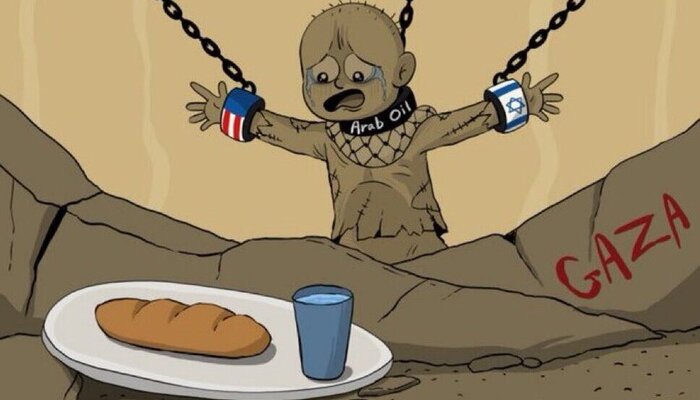
NEW YORK: Prime Minister Shehbaz Sharif delivered a speech at the 79th session of the United Nations General Assembly (UNGA) on Friday. He addressed urgent global issues, focusing on Israel’s military actions in Gaza, the unresolved Kashmir dispute, the climate crisis, and the international community’s failure to uphold justice and human rights.
Sharif began his address with a recitation from the Quran. He expressed pride in representing Pakistan for the second time at the General Assembly. He congratulated the newly elected president of the UNGA, Dennis Francis, and reaffirmed Pakistan’s commitment to the UN Charter. “Our founding father, Quaid-e-Azam Muhammad Ali Jinnah, declared that Pakistan stands by the United Nations Charter, and we remain committed to peace and prosperity for the world,” he stated.
Call for Immediate Action on Gaza
The Prime Minister condemned Israel’s bombardment of Gaza. He described the situation as a “genocidal war” and a humanitarian catastrophe. Sharif painted a vivid picture of suffering for Palestinian civilians, particularly women and children, and called for an end to the violence. “Our hearts bleed as we witness the tragedy unfolding in the Holy Land,” he lamented. “This is not just a conflict; it is the systematic slaughter of innocent people and an assault on the very essence of human life and dignity.”
Sharif urged the international community to stop the bloodshed. He advocated for a durable peace through a two-state solution, calling for a sovereign Palestinian state based on pre-1967 borders, with East Jerusalem as its capital. “Can we remain silent while children lie buried under the rubble of their homes? The blood of Gaza’s children stains the hands of those complicit in prolonging this cruel conflict,” he emphasized. He also demanded Palestine’s admission as a full UN member to protect Palestinian lives.
Kashmir Conflict and Indian Aggression
Next, Sharif drew parallels between the plight of the Palestinian people and the struggle of the Kashmiri people for self-determination. He criticized India for ongoing repression in Jammu and Kashmir, accusing it of ignoring UN Security Council resolutions calling for a plebiscite. “Like the people of Palestine, the people of Jammu and Kashmir have struggled for a century for their freedom and right to self-determination,” he said.
He condemned India’s actions since August 5, 2019, when it revoked Kashmir’s special status. Sharif accused New Delhi of attempting to impose a “final solution” by altering the region’s demographic composition. “Day in and day out, 900,000 Indian troops terrorize the people of occupied Jammu and Kashmir with draconian measures,” he noted. He warned India that Pakistan would respond decisively to any aggression across the Line of Control.
Read: JUI-F Declares No Support for Justice Qazi Faez Isa
Climate Change and Pakistan’s Vulnerabilities
Sharif then shifted focus to the global climate crisis, highlighting the devastating floods in Pakistan in 2022, which caused $30 billion in damages. He pointed out that countries like Pakistan, which contribute less than 1% of global carbon emissions, bear the brunt of climate-induced disasters. “This is most unfair in any calculus of global justice,” he asserted.
He called on the international community to uphold the principle of “polluter pays” and urged developed nations to fulfill their commitments to climate finance. Sharif stressed the need for a new annual target beyond $100 billion to support developing countries in achieving climate goals.
Global Economic Reforms and Pakistan’s Stability
Sharif addressed the growing debt crisis facing nearly 100 developing countries, calling it a “death trap” rather than a “debt trap.” He urged reform of the international financial architecture, which he described as “morally bankrupt.” “Achieving the SDGs remains a distant mirage for many developing nations,” he warned.
Highlighting Pakistan’s economic recovery, Sharif noted that his government had stabilized the economy, reduced fiscal deficits, and strengthened foreign reserves. He claimed inflation had decreased to single digits, reviving growth prospects. Sharif also emphasized Pakistan’s commitment to combatting terrorism, vowing to eliminate the threat through the “Azm-e-Istehkam” initiative.
Regional Cooperation and Unity Against Islamophobia
Sharif praised the progress of the China-Pakistan Economic Corridor (CPEC) and emphasized Pakistan’s commitment to regional stability. He called for international assistance for the humanitarian crisis in Afghanistan and highlighted the importance of respecting human rights, especially those of women and girls.
He expressed concern over the rise of Islamophobia, pointing to attacks on mosques and negative stereotypes of Muslims. “Islamophobia is a global concern, and we must combat this scourge together,” he urged.
A Call for Justice and Peace
Sharif called on the international community to uphold justice and equality. He urged that “the weak are not voiceless” and that global equity and prosperity must be respected. “Let us leave this hall with a message for our people—that the oppressed should not lose hope,” he said.
His final plea emphasized peace, dialogue, and multilateral cooperation. “The time for action on pressing global challenges is now. Let us not fail the future of humanity,” he concluded.
Follow us on Google News, Instagram, YouTube, Facebook, Whats App, and TikTok for latest updates












